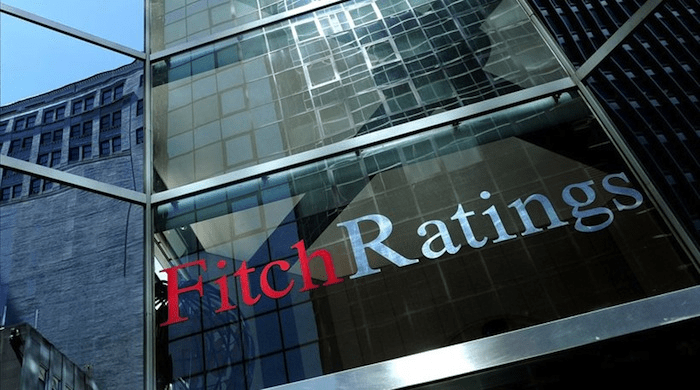International Ratings agency, Fitch, says Ghanaian banks are well-positioned to absorb the increased asset quality risk from borrowers pressured by the economic effects of the coronavirus pandemic.
According to the UK based firm, the covid-19 pandemic-induced defaults will add to legacy asset quality issues, but strong operating profitability and improved capitalisation meant banks are on a sound footing to absorb the risks.
“Pandemic-induced defaults will add to legacy asset-quality issues linked to loss-making state-owned energy companies and bulk oil distribution companies that suffered from currency depreciation and delays in government subsidy payments.”
“The sector entered the crisis strengthened by recent initiatives led by the government and the Bank of Ghana (BoG) that addressed energy sector asset quality issues, raised minimum capital requirements and resulted in consolidation”, it emphasised.
Ghana's growth rate is expected to have shrank to 2% in 2020, from 6.5% recorded in 2019. This is as a result of lockdown measures and the global shock on trade and financial flows, with the oil and gas and manufacturing sectors experiencing the steepest contractions.
Fitch pointed out that the slowdown of the economy has weakened the repayment capacity of households and businesses, although debt-relief measures provided to customers have limited the impact on asset quality.
The banking sector's non-performing loans ratio increased only modestly to 14.8% at the end of 2020 (end-2019: 14.3%).
The Bank of Ghana recently disclosed that 9% of banking sector loans had been restructured.
This the ratings agency said is much lower than in other Sub-Saharan African markets under its coverage. Moreover, loans are only a small proportion of the sector's overall assets.
Loans benefitting from debt relief are largely classified as performing but expected to see NPLs increase moderately as these measures slowdown this year.
Banking sector indicators very strong
According to the Monetary Policy Report, the various banking indicators- Capital Adequacy, Liquidity and Non-Performing Loans ratio remain strong.
Solvency which is the ability of a bank to meet its financial obligations and liquidity indicators remained strong.
At the same time, the banking industry’s Capital Adequacy Ratio of 19.8%, was well above the regulatory minimum threshold, as of December last year. Core liquid assets to short term liabilities were estimated at 27.8% in December 2020 compared with 30.5% a year ago.
Latest Stories
-
ORAL is not a tool for witch-hunting – John Mahama
7 minutes -
Audit the state of Ghana’s health sector – Kwame Asiedu urges Mahama
24 minutes -
East Legon accident: Salifu Amoako’s son jailed 6 months
26 minutes -
Brenda Antwi Donkor – the unsung lady behind the most iconic TV productions
29 minutes -
MUSIGA mourns Naa Amanua of Wulomei fame
46 minutes -
Audit Agenda 111 lands and funds – Kwame Asiedu urges Mahama
54 minutes -
President Akufo-Addo commissioned mere buildings, not hospitals – Kwame Sarpong Asiedu
57 minutes -
David Ocloo joins Togolese side AS OTR Lomé as head coach
1 hour -
The evolution of Ghana’s film industry: From local beginnings to global showcase
1 hour -
Black Galaxies: Didi Dramani rallies support ahead of CHAN qualifier against Nigeria
1 hour -
Agenda 111 will not solve Ghana’s healthcare crisis – Kwame Sarpong Asiedu
1 hour -
“I never left the stage” – Fameye on London show mishap
1 hour -
I have a plan to win the league for Hearts Of Oak- Aboubakar Outtara
2 hours -
CIB Ghana celebrates induction of 110 Chartered Bankers, totaling 1,127 over five years
2 hours -
LPG consumption increases by 4% in 2023
2 hours

